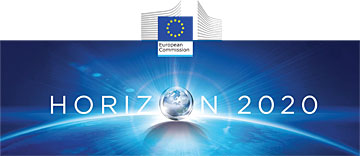The External Projects Team are delighted to be hosting the annual UKRO event on the 13th February 2013.
The event is aimed both at colleagues who have experience of, and those who would like to know more about, EU funding.
This is an opportunity to hear about the new EU funding programmes (2014-2020) with UKRO European Advisor Jo Frost; as well as firsthand experience of running EU partnerships and projects from Prof. Nachi Chockalingam and Jon Fairburn.
The Programme is set out below –and is arranged so that you can book for any, or all of the sessions. Some sessions are repeated during the day to offer maximum flexibility.
Please register by February 6th via externalprojects@staffs.ac.uk, specifying which sessions you wish to attend;
STAFFORDSHIRE UNIVERSITY
UKRO Annual visit Feb 13th FINAL PROGRAMME
All sessions in ROOM BG 21 – Ground floor Brindley Building
SESSION 1
0900, Horizon 2020, the new EU research and innovation funding programme (2014-2020):Current proposals and decision making process. Jo Frost, European Advisor, UKRO
1100 Coffee/ networking
SESSION 2 1130, Working with EU partners –Staffordshire University experience. Nachi Chockalingam, Professor of Clinical Biomechanics
School of Psychology, Sport and Exercise; Faculty of Health Sciences
SESSION 3 1200, How to make the most of UKRO services (repeated 1500). Jo Frost, European Advisor, UKRO
SESSION 4 1400, Erasmus for All: replacing the Lifelong Learning Programme, includes education funding and funding related to Sport. Jo Frost, European Advisor, UKRO
SESSION 5 1430, Working with EU partners –Staffordshire University experience. Jon Fairburn: Enterprise Reader, Business School – Research & Enterprise. Faculty of Business, Education and Law
SESSION 6 1500, How to make the most of UKRO services (repeat of 1200) Jo Frost, European Advisor, UKRO
SESSION 7 1530 -16-30, Marie Curie Individual Fellowships – session for all or 1-2-1 individual slots. Jo Frost, European Advisor, UKRO.



